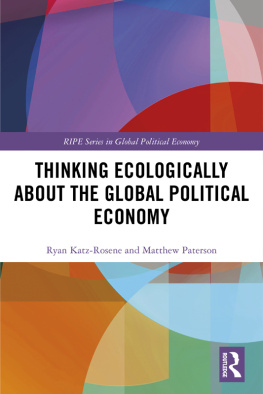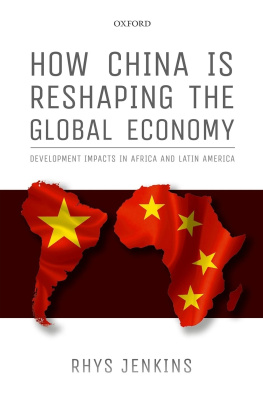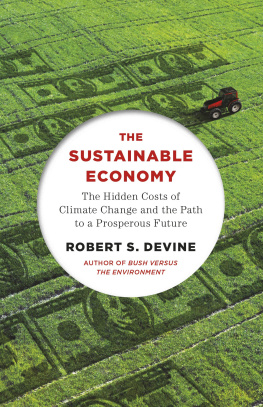THE TREADMILL OF PRODUCTION
Advancing the Sociological Imagination
A Series from Paradigm Publishers
Edited by Bernard Phillips and J. David Knottnerus
Goffman Unbound! A New Paradigm for Social Science
By Thomas J. Scheff (2006)
The Invisible Crisis of Contemporary Society: Reconstructing Sociologys Fundamental Assumptions
By Bernard Phillips and Louis C. Johnston (2007)
Understanding Terrorism: Building on the Sociological Imagination
Edited by Bernard Phillips (2007)
Armageddon or Evolution? The Scientific Method and Escalating World Problems
By Bernard Phillips (2008)
Postmodern Cowboy: C. Wright Mills and a New 21st-Century Sociology
By Keith Kerr (2008)
Struggles before Brown: Early Civil Rights Protests and Their Significance Today
By Jean Van Delinder (2008)
The Treadmill of Production: Injustice and Unsustainability in the Global Economy
By Kenneth A. Gould, David N. Pellow, and Allan Schnaiberg (2008)
Bureaucratic Culture and Escalating World Problems: Advancing the Sociological Imagination
Edited by J. David Knottnerus and Bernard Phillips (2009)
Forthcoming
Ritual as a Missing Link within Sociology: Structural Ritualization Theory and Research
By J. David Knottnerus (2009)
THE TREADMILL
OF PRODUCTION
INJUSTICE AND UNSUSTAINABILITY IN THE GLOBAL ECONOMY
Kenneth A. Gould, David N. Pellow, Allan Schnaiberg
First published 2008 by Paradigm Publishers
Published 2016 by Routledge
2 Park Square, Milton Park, Abingdon, Oxon OX14 4RN
711 Third Avenue, New York, NY 10017, USA
Routledge is an imprint of the Taylor & Francis Group, an informa business
Copyright 2008, Taylor & Francis.
All rights reserved. No part of this book may be reprinted or reproduced or utilised in any form or by any electronic, mechanical, or other means, now known or hereafter invented, including photocopying and recording, or in any information storage or retrieval system, without permission in writing from the publishers.
Notice:
Product or corporate names may be trademarks or registered trademarks, and are used only for identification and explanation without intent to infringe.
Library of Congress Cataloging-in-Publication Data
Gould, Kenneth Alan.
The treadmill of production : injustice and unsustainability in the global economy / Kenneth A. Gould, David N. Pellow, Allan Schnaiberg.
p. cm. (Advancing the sociological imagination)
Includes bibliographical references and index.
ISBN 978-1-59451-506-4 (hardcover : alk. paper)
ISBN 978-1-59451-507-1 (paperback : alk. paper)
1. Environmentalism. 2. Environmental policy. 3. Environmental degradation. 4. Social ecology. I. Pellow, David N., 1969 II. Schnaiberg, Allan. III. Title.
GE197.G685 2008
333.72dc22
2007044446
Designed and typeset by Straight Creek Bookmakers.
ISBN 13: 978-1-59451-507-1 (pbk)
ISBN 13: 978-1-59451-506-4 (hbk)
For Frederick H. Buttel, 19482005,
whose mastery of political-economic dynamics
continues to inspire us.
Contents
THE RELATIONSHIP BETWEEN THE GLOBAL ECOSYSTEM and increasingly global social systems is more problematic today than at any point in history. In this book we present a theoretical framework, the treadmill of production, which seeks to explain why socioenvironmental dynamics are increasingly out of balance, and why national and global social institutions have failed to adequately respond to the rapid disorganization of natural material life support systems. Paradoxically, we note that over the years in which the theory has been revised and refined, much U.S. scholarship and the focus of a growing share of U.S. environmental movements have increasingly shifted toward addressing environmental issues as a personal problem (Mills 1959). For example, much has been written about how to recycle our household waste (Weinberg et al. 2000). In similar manner, many community groups have tried to negotiate local agreements with toxic waste producers in their own back yard (Weinberg 1997). Even former President-elect Al Gores Live Earth concerts, intended to raise awareness about global climate change, emphasized the little things people can do as individuals to reduce their impacts on the environment, with little note made of the possibility of collective action to address this social problem. With the attention of two billion global citizens, the Live Earth event failed to offer a framework for understanding the systemic nature of the climate crisis or any other aspect of the social systemecosystem interaction, and that is precisely what the treadmill of production theory aims to do.
While the treadmill of production theory was initially proposed in 1980, we see that it continues to explain many of the unresolved environmental and social problems in the contemporary world. Its original analysis of U.S. environmental problems boldly argued that one major factor helped shift how our environment changed from a situation representing a surplus to U.S. society to one in which we became more aware of the scarcity of many of our environmental amenities. This factor was the growing level of profits increasingly invested in new technologies rather than in expanding employment or raising the status of workers. The hallmark of the emergent U.S. production system was an accelerating rate of displacement of production workers. These workers were replaced by new technologies that were being systematically developed by large-scale organizations for the first time in history.
Such new technologies were being developed both by university researchers and by industrial research and development teams in firms themselves. In addition, government support of basic and applied research in the post-1945 period changed the previous little science into big science (Price 1986). A large share of this research was designed by and for the use of the military, with treadmill firms producing much of it. Ironically, it was a former general (and president), Dwight D. Eisenhower, who cautioned Americans in 1961 about the growing military-industrial complex emerging in the United States:
This conjunction of an immense military establishment and a large arms industry is new in the American experience. The total influenceeconomic, political, even spiritualis felt in every city, every State house, every office of the Federal government. We recognize the imperative need for this development. Yet we must not fail to comprehend its grave implications. Our toil, resources and livelihood are all involved; so is the very structure of our society.
In the councils of government, we must guard against the acquisition of unwarranted influence, whether sought or unsought, by the military-industrial complex. The potential for the disastrous rise of misplaced power exists and will persist.
We must never let the weight of this combination endanger our liberties or democratic processes. We should take nothing for granted. Only an alert and knowledgeable citizenry can compel the proper meshing of the huge industrial and military machinery of defense with our peaceful methods and goals, so that security and liberty may prosper together.
In some ways, Eisenhowers statement paid the first political attention to the emergent treadmill of production. As Schnaiberg (1977) argued, there was a huge expansion of










